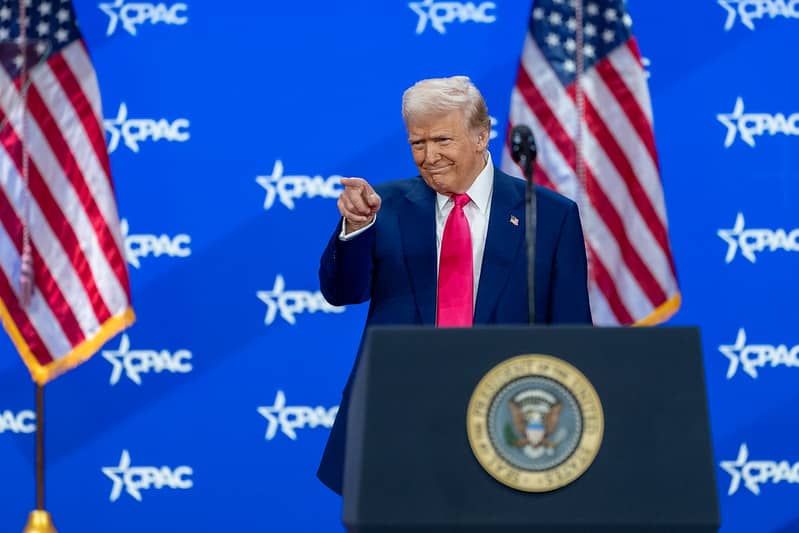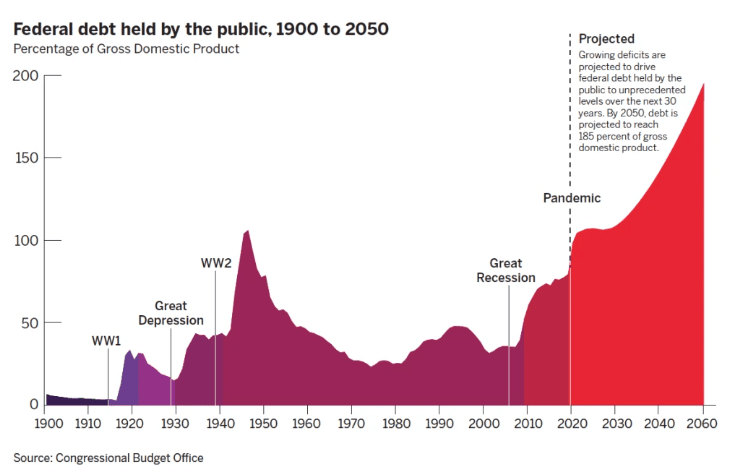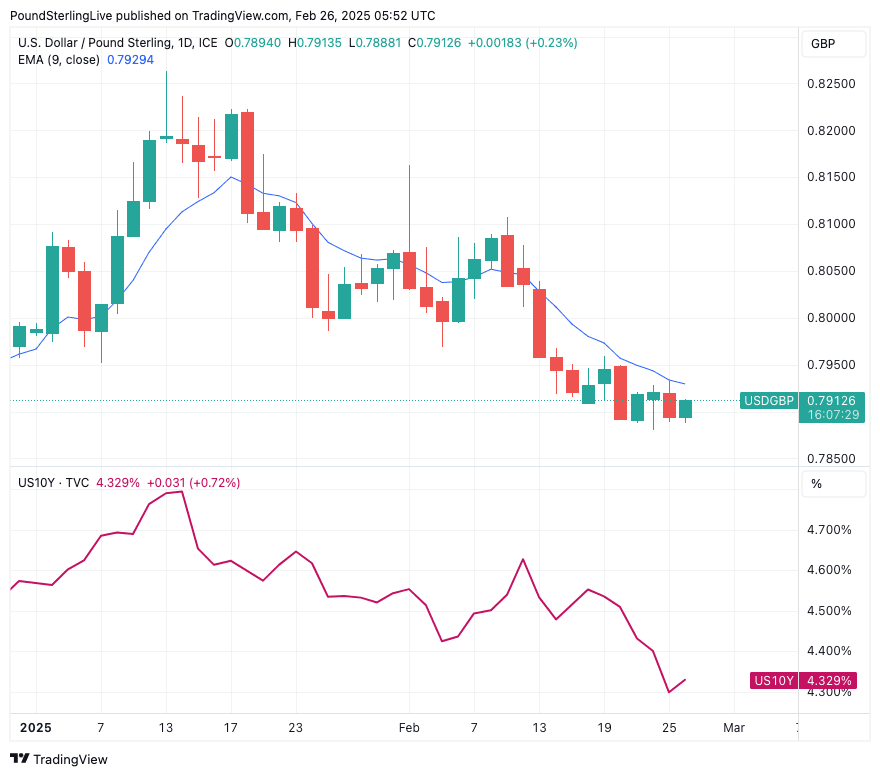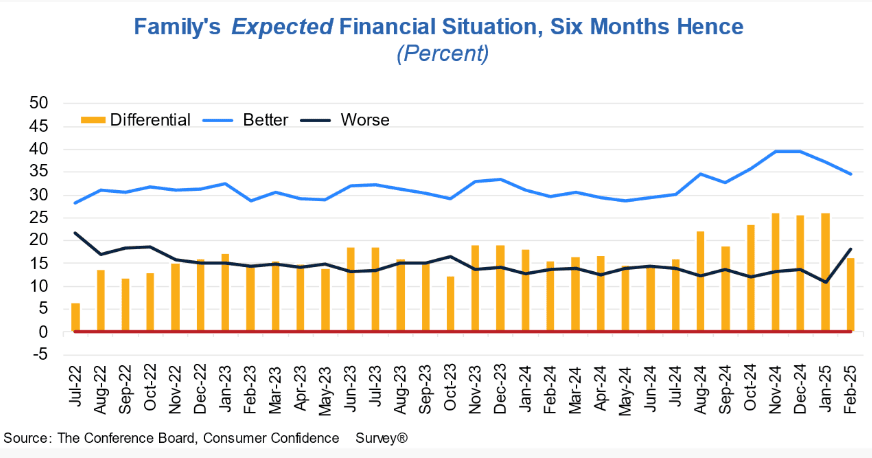
Image: The White House.
Falling U.S. bond yields weigh on the dollar as the economy slows and investors anticipate reduced government spending.
The ten-year U.S. bond yield has fallen below 4.4%, its lowest since December 12, and money markets show investors now see 54 basis points of easing from the Fed by the end of the year, compared to 48bp on Monday.
This means there are now two 25bp cuts expected this year, confirming investors think the U.S. economy is slowing. It also susggests they think the government's efforts to lower the country's debt will pay off.
Elon Musk's DOGE programme is snipping away at the deficit, which reached 6.4% of the GDP in 2024, but analysts say that the amounts being achieved so far are relatively small as a percentage of total expenditure.
However, DOGE's message is bigger than the actual cuts it delivers: that Trump is determined to lower the country's debt.
Image courtesy of American Banker.
Trump's recent focus on bond yields and willingness to talk publicly about bringing down military spending signals that the government is determined to make significant inroads into America's balooning budget deficit.
If the government succeeds in shrinking the deficit, the Treasury will need to issue less debt (bonds). This means supply outstrips demand, driving up bond values and lowering their yield (or interest rate).
The Dollar has a positive relationship with bond yields, which explains why it is falling alongside the decline in Treasury bond yields:
Above: USD/GBP tracks the U.S. ten-year bond yield lower.
It is clear yields are important for Trump. Treasury Secretary Scott Bessent said on February 06 that when Trump speaks of wanting lower interest rates, he is referring to the yield on the 10-year Treasury and not the short-term rate set by the Fed.
Musk also confirms the administration is highly focused on debt and yields, saying in a conversation hosted on X: "The bond markets do not currently reflect the savings that I'm confident we can achieve. If you're shorting bonds, I think you’re on the wrong side of the bet."
But DOGE is doing more than cutting spending, it is raising uncertainty and unemployment, which is slowing the economy and is deflationary.
For this reason, markets have recently adopted the view that DOGE's efforts are consistent with more Fed interest rate cuts, which will weigh on bond yields and the Dollar going forward.
Anna Wong, the chief U.S. Economist at Bloomberg Economics, says DOGE’s cuts will likely appear first in lower GDP growth as early as the second quarter, ahead of a sharp rise in the unemployment rate in the second half.
Markets are forward-looking, and the declining Dollar and bond yields show investors are preparing for this eventuality.
The Dollar was the best-performing major currency through the second half of 2024 as U.S. economic exceptionalism came to the fore with a solid run of above-consensus data releases.
However, Torsten Sløk, Chief Economist at Apollo Global Management, cautions that "the near-term downside risks to the economy and markets are growing."
Above: There has been a noticeable deterioration in confidence in 2025, according to the Conference Board's confidence survey.
"The incoming data remains strong," Sløk said. "But we are starting to worry about the downside risks."
He explains that elevated policy uncertainty centred on the DOGE programme will begin to have a negative impact on capex spending and hiring decisions.
"Torsten Slok, who has been adamant and correct on the U.S. economy for a long time (bullish) is turning more cautious and I think that’s worth paying attention to," says Brent Donnelly, founder of Spectra Markets.
Can tariffs boost the Dollar? After all, Trump remains committed to them and the FX playbook says they are by their very nature inflationary, which is USD-supportive.
"The USD remains poised to capitalise if tariffs arrive," says Daragh Maher, Senior FX Strategist at HSBC.
However, markets are showing themselves to be increasingly less sensitive to tariff headlines than at the turn of the year, with the USD falling on the day Trump confirmed tariffs on Mexico and Canada were still likely to proceed on March 03.
The market reaction confirms that the deflation posed by DOGE and spending cuts are more relevant than the inflationary nature of tariffs.
Quite simply, fears of an economic slowdown outweigh any tariff-inspired inflation and tip the scales against the Dollar.



